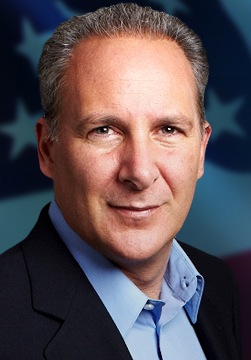US Dollar's Days as the World's Reserve Currency are Numbered
In the 20th Century, the U.S. dollar became the world's reserve currency because it was the coin of the world's leading economy. In the "Bizzaro" 21st Century economy, this causality has reversed. Today, the primary reason the U.S. remains the world's leading economy is because the dollar still serves as the reserve currency. However, if market fundamentals can ever manage to re-assert themselves, this is a reality that can, and indeed must, change.
In the past, foreign citizens accumulated U.S. dollars so they could purchase American-made goods. Today, foreign central banks accumulate dollars so that Americans can purchase foreign-made goods. In the past, profits from her exports allowed America to become the world's greatest lender. Today, in order to fund her gargantuan trade deficit, America has become the world's greatest borrower. The dollar's reserve currency status allows "rich" Americans to continuously borrow what "poor" foreigners save, and consume what foreigners produce. Without such status, America's consumption would be limited by its own production, and its borrowing confined by its domestic savings. In such a world, Americans would have a standard of living far lower than the one currently enjoyed.
The U.S. dollar index, which has fallen over 30% in three years, rose for the first week in five, after ending last week within 2% of its all time record low set back in 1992. With the dollar's technical and fundamental outlook deteriorating, a test of those lows is imminent. A significant break below this long term support could send the dollar tumbling. Without considerable, coordinated, global central bank intervention, the dollar's value could be halved. Even if massive, unprecedented intervention is successful, its effects will be temporary at best. This looming dollar crisis cannot be prevented, only delayed, and only at the expense of exacerbating the collapse.
The dollar was originally accepted as the world's reserve currency mainly because America flooded the world with low-cost, high-quality manufactured goods (being convertible into gold also helped). In America, the words "it's imported" were synonymous with "it's expensive." If a product malfunctioned, a common expression was "it must have been made in Japan." In fact, the Japanese had such a hard time overcoming this stereotype that they actually name a city in Japan, USA, so they could label their product "made in USA." Today the exact opposite is true, as imports are inexpensive, while domestically produced products are high cost. Japanese manufactures now enjoy the reputation for quality that American manufactures lost.
The main reason America was so competitive was that it had a comparative advantage in freedom. American business incurred lower taxes and faced fewer regulations than business in any other country. Further, Americans themselves were among the world's most frugal, with high domestic savings financing capital investments. Limited government and high savings combined to allow American business to pay the highest wages in the world while still producing the least expensive products. Today America is just as highly-taxed and regulated as most other countries, and more so than many, and Americans themselves are now among the world's most profligate.
For a time, America has been able make up for its lack of exports by offering its trading partners the promise of greater financial returns on their dollars investments. However, since America now has the lowest real interest rates in the world (they are, in fact, negative) and the most over-valued stock and real estate markets, private foreign investors have no compelling reason to accumulate dollars. Not surprisingly, the principal buyers have been foreign central banks, who after all are spending taxpayer's money. There can be no question that panicked foreign central banks, which bow to political expedience, not rational self-interest, are the buyers of last resort, and that the dollar's days as the world's reserve currency are numbered.
The main reason that the US dollar is still the world's reserve currency is that few understand how completely the fabric of the American economy has been rewoven. In fact, the US economy functions in a manner which would be completely impossible were it subject to normal market forces. However, by issuing the world's reserve currency, it has been immune to these forces, and thus its economy has evolved in a most unnatural way. Recent trial balloons launched by various Asian central banks, concerning diversifying their foreign exchange reserves; indicate that the dollar's reserve currency status may already be at risk. Once that status is lost, the process of returning to economic viability will be quite painful, and will involve substantial austerity from both the US government and its citizens. Whether America is up to the task still remains to be seen, and though I am skeptical, I nevertheless remain hopeful.
18 March 2005
Peter Schiff
C.E.O. and Chief Global Strategist
Euro Pacific Capital, Inc.

















